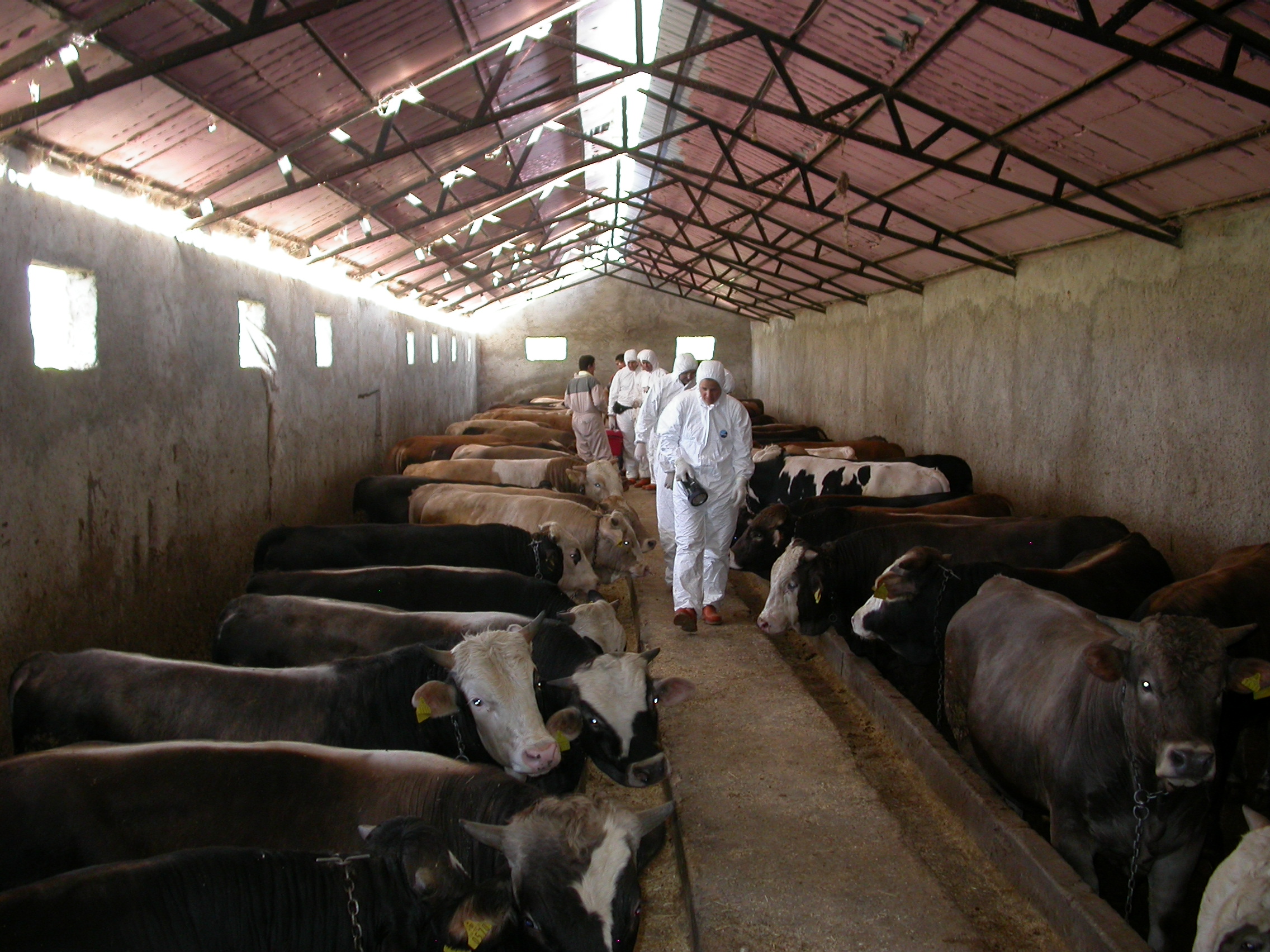FAO launches the Progressive Control Pathway for Foot-and-Mouth Disease (PCP-FMD) Support Officer (PSO) induction virtual training

Cattle Barn Investigation Team Yurtbasi
©©EuFMD-FAST
This training, delivered within the framework of the Global FMD Control Strategy by the Food and Agriculture Organization of the United Nations (FAO), is hosted on the FAO Virtual Learning Centers (VLC) platform to enhance FMD control capacity in endemic regions and accelerate country progress on the Progressive Control Pathway for FMD (PCP-FMD) by 2027.
The PSO system, introduced in 2017-2018, is an initiative of the Global Framework for the Progressive Control of Transboundary Animal Diseases (GF-TADs), started by European Commission for the Control of Foot-and-Mouth Disease (EuFMD) and supported by the FAO, to provide direct support to endemic countries in the early stages of the PCP-FMD to develop FMD national control strategies. The PSO roster, made of 13 experts, currently supports 33 countries. The value of the PSO initiative is acknowledged by the GF-TADs partners.
Course outline
The course delivered in virtual format, in English and French languages, is using the Virtual Learning Centres (VLC) platform (the VLC Near East and West Africa, respectively) and is delivered in collaboration with EuFMD. The training is divided into two phases: an induction training and two live virtual workshop sessions. It will run for four weeks. Throughout these weeks, participants will be equipped with skills and knowledge on the approach taken by PSOs to provide country-level guidance on progression within the PCP-FMD and encourage regional coordination in the framework of the Global FMD Control Strategy. In total, there will be a range of activities included in this course, including live sessions, recorded presentations, reading materials, assignments, group exercises, and discussions on the online forum.
Up to 41 participants from different regions (Eastern Africa, Central Africa, West Africa, North Africa, South Asia, and the Near East) will be divided into English or French sessions. Each course will start with an interactive meeting, where participants meet with their peers and trainers and learn about the course and the PSO's roles and responsibilities. The trainees will then learn through the induction phase, covering the key features of the Global FMD Control Strategy; the PCP-FMD principles and procedures and requirements for country progression; the role and responsibilities of PSOs, and in particular how PSOs interact with national focal points for control strategy development; and the material available to PSOs (tools and guidance) to support countries.
The participants will then go to the two virtual workshops for in-depth discussions with senior PSOs.
Participants completing the coursework with a satisfactory comprehensive assessment will be awarded a certificate and will join the PSO roster. They may be assigned a country to support within their region by the GF-TADs FMD Working Group. PSO support is available for countries that are currently in Stages 0 to 2 of the PCP-FMD. ''This training will expand the number of experts who can serve as PSOs providing external support tailored to the specific context of the countries that want to progress in FMD control. Since 2020, among the 20 countries who submitted their FMD control strategy for the FMD-WG technical review, 16 have been assigned a PSO, showing the value of such support in the effective implementation of the PCP-FMD at the country level''. said Dr. Madhur Dhingra, Head of Emergency Prevention System for Animal Health, FAO programme to control transboundary animal diseases.
About the FAO VLCs
FAO Virtual Learning Centers (VLCs) are virtual hubs established to develop and improve One Health capacities in all FAO regions. Its mission is to provide the trainees with access to inclusive, engaging, and high-quality training using a variety of methodologies.
The VLCs follow a decentralized model that empowers FAO regions to develop and deliver courses that closely consider regional needs and context. This model also makes it possible to scale up the delivery of courses and share resources and good practices between VLCs.
There are currently seven VLCs, with at least one VLC established per FAO region, delivering courses to trainees around the world. The courses are developed in close collaboration with FAO technical divisions, regional focal points, and international experts click here to read about VLC FAO Virtual Learning Centers.
Acknowledgement
The project or effort depicted was or is sponsored by the United States Department of Defense, Defense Threat Reduction Agency (DTRA). The content of the information does not necessarily reflect the position or the policy of the Federal Government of the United States, and no official endorsement should be inferred.
